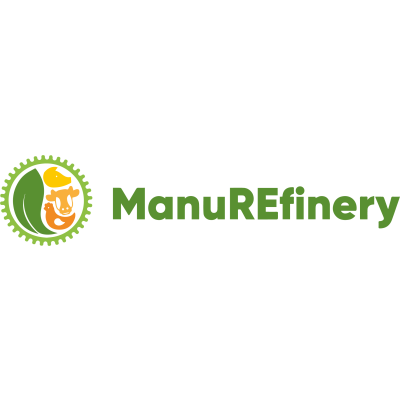
MANUREFINERY
Smart modular mobile biorefining of manure to zero-waste maximising resource and nutrient recovery for feed and fertiliser bioingredients in rural areas

Smart modular mobile biorefining of manure to zero-waste maximising resource and nutrient recovery for feed and fertiliser bioingredients in rural areas
While livestock is an extremely important activity for the European rural economy, it has a significant environmental impact due to the billion tonnes of manure produced annually.
MANUREFINERY will develop a smart, modular, mobile, and sustainable small-scale decentralised biorefinery that converts livestock manure into bio-based feed and fertiliser with the aim to improve the use of manure and control NH3 emissions. The project will create seven new value chains in the livestock sector, producing seven bioingredients from any type of manure.
The MANUREFINERY solution has a high scalability and replicability potential through:
MANUREFINERY will run TRL 6-7 level demonstrations in two pig farms in Romania and Spain, a cow farm in Slovenia and a poultry farm in Romania, thus promoting sustainable bioeconomy in these countries.
To improve the management of manure and control of NH3 emissions, MANUREFINERY aims to:
MANUREFINERY expects to have technological, social, regulatory, environmental, and economic impacts by: